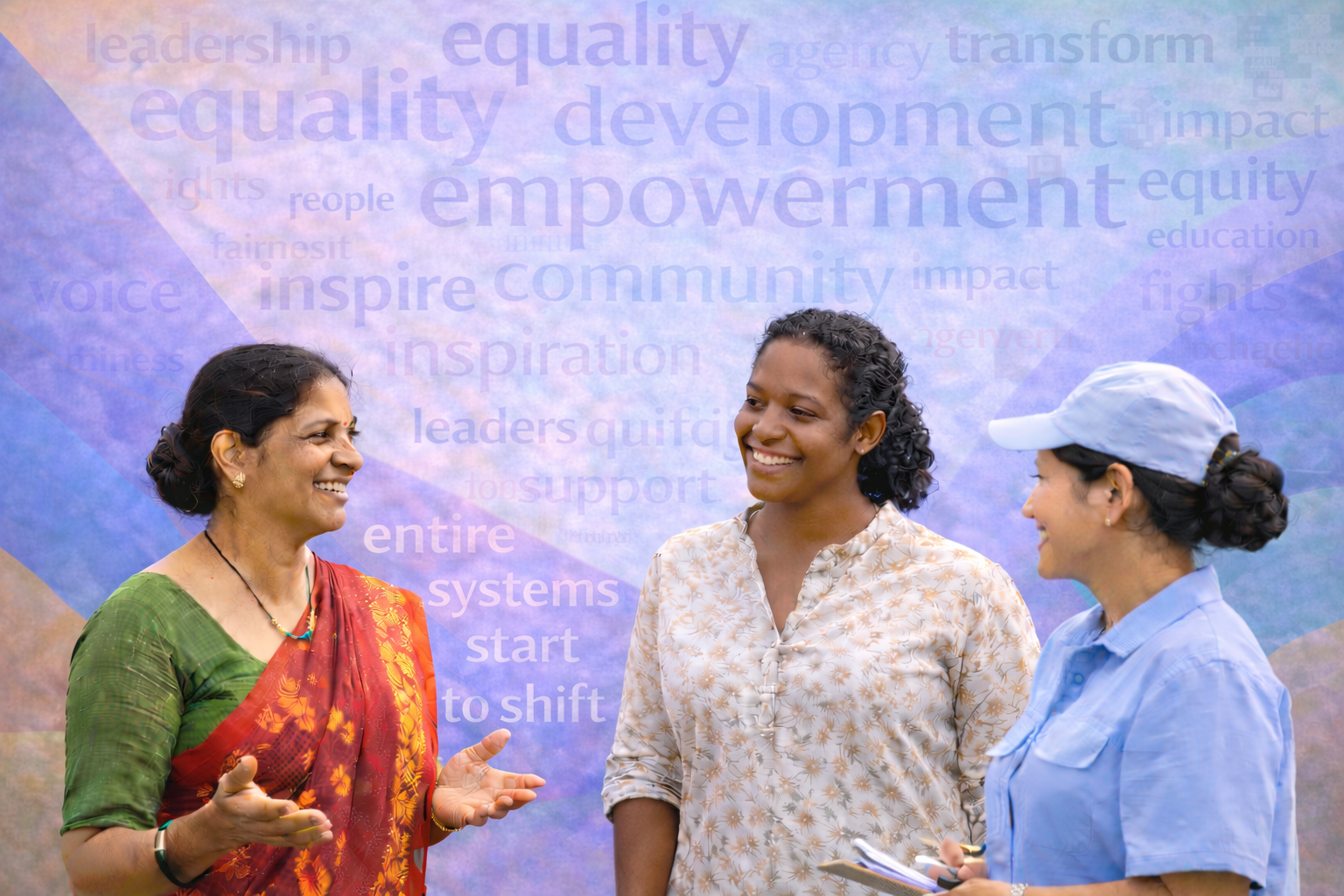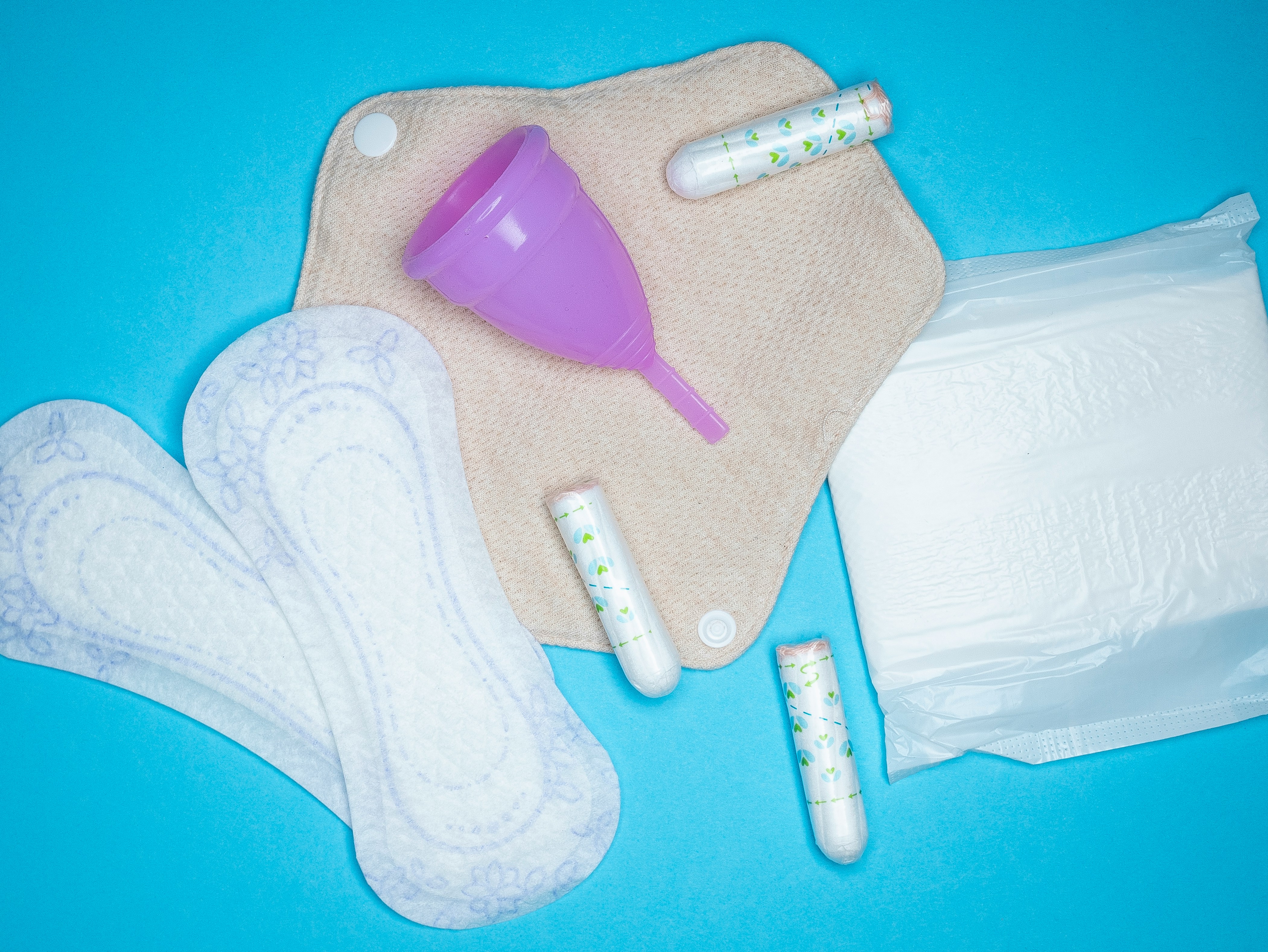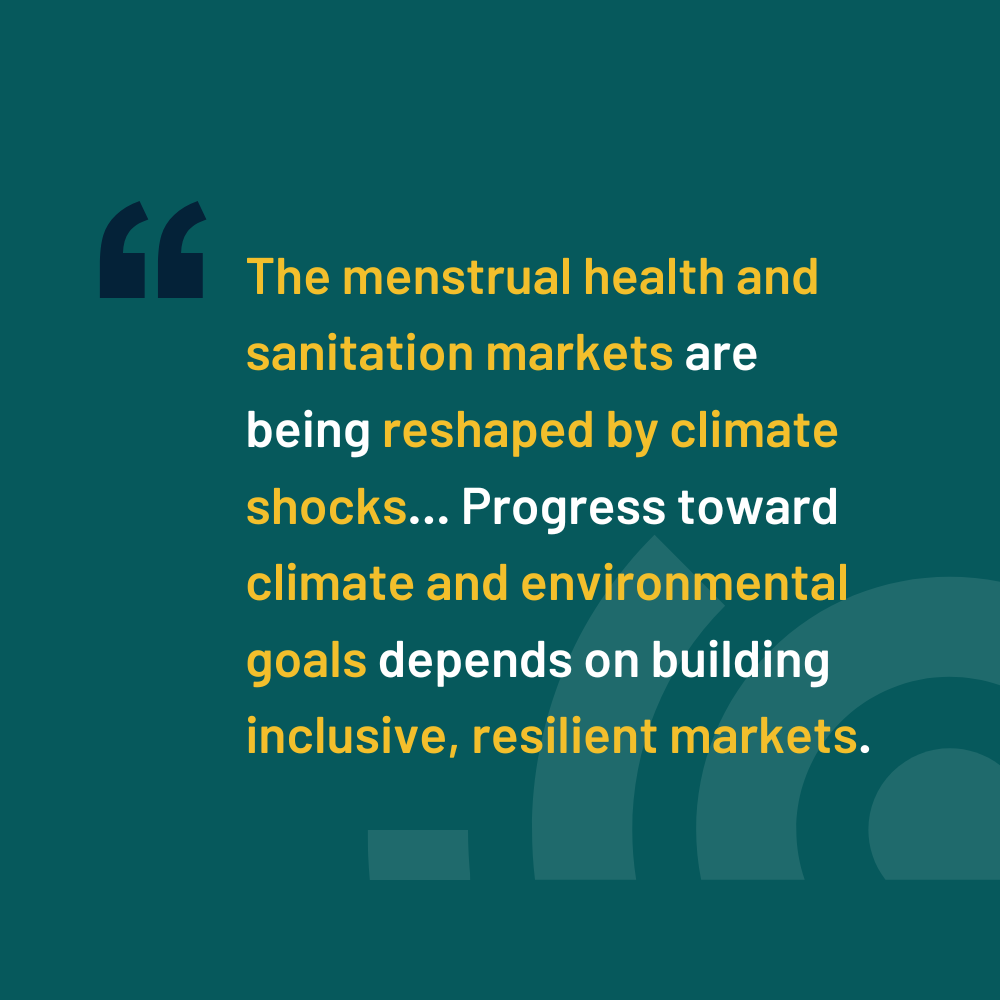
“Any rights-based approach to Menstrual Health must include choice”: Community Health & Gender Activist Naomi Tulay-Solanke

Noted Menstrual Health and Hygiene (MHH) champion and SHF Board Member, Noami Tulay-Solanke, outlines how access to safe, quality and affordable menstrual products in a thriving menstrual health market can have far-reaching impacts on the choice and agency of women and girls living in Low- and Middle-Income Countries (LMICs).
Can you tell us a little bit about how your engagement with MHH started?
I am from Liberia and my engagement with MHH started shortly after the war when there were a whole lot of relief items being distributed to families with the exception of menstrual products. I was still young but I could see my mother and sisters struggling to manage their period and as I grew, I struggled with the lack of access too. This was also because I had not had conversations or discussions on my period, what I would need to manage it etc. This was my lived reality up until I graduated from college and even then, as my own situation improved, being a registered nurse, I witnessed the challenge at a completely different scale. Menstruation continued to be a taboo topic and the impacts of this are pernicious and pervasive. During the Ebola crisis in 2014, this came to a head when during my visits to school to distribute information, education and communication (IEC) materials, I could see school girls still struggling from the lack of information, and as a consequence lack of solutions to manage their period safely and with dignity. That’s when my team and I decided to do something and this marks the start of my focused work with MHH. Over the past years, I have been able to work with the government and legislators in Liberia to take steps to address period poverty, from removal of taxes to promoting MHH information and the menstrual health market. Women and girls who menstruate experience a period every month, they deserve to be able to find solutions to manage them to their comfort and well-being.
What do you see as the biggest barriers to access to MHH?
Menstruation is a normal biological process but because it involves blood which makes many people uncomfortable and because it impacts women and girls, and not men, there exist today countless myths and taboos around the topic. In Liberia for example, it is seen as an illness or abnormality that mustn’t be spoken about and this has further perpetuated the cycle of misinformation, or the lack of information altogether. This is by far one of the biggest barriers because if you don’t know your cycle, you can’t know what you need to manage it well and how products and facilities can be helpful to menstrual health management.
Do you see this lack of information also impacting access to menstrual products?
Yes, of course. MHH is a holistic issue and it starts with access to information. Because once I know what menstruation is and that I will be getting my period every month for 3 to 7 days then I am aware and I can start looking at what I need to manage my period and embrace the process. Whether it is single use products or reusable ones and what the limitations or advantages are of each, knowing these details will help me decide what product would suit me best. That said, we know in LMICs, product availability, affordability and accessibility has its own challenges and this is why we need to be looking at building local menstrual health markets and scaling the solutions available, with quality and price efficiency. In LMICs, we know cost can be prohibitive - a family may have to choose food over menstrual products and even today, we hear of women and girls engaging in transactional sex for menstrual products and this is what we need to change. We need to invest in making safe, quality and affordable menstrual products available to all so that once a woman or girl has decided that she wants pads or a cup to manage her period, she can exercise that choice. If we continue relying on free distributions for all contexts, we are taking away the power of choice and informed decisions.
Where do you see the value for market-based approaches to MHH?
Any rights-based approach to MHH must include choice - it means all the components of MHH, from information to markets are working together and people can make informed decisions and are able to afford and access whatever choice of product they make to manage their period safely and with dignity. The menstrual health market can put the health, choice and agency of a woman or girl in her own hands and this is its most important value add. But to do so, the market needs to respond to the needs of those who want to access it and this is its most important responsibility. There is a growing demand for menstrual products, one that will grow year on year and for 35 to 40 years of a girl’s life, but the market needs to respond to this responsibly. There can be a lot of sub standard products out there, which is unacceptable given women are wearing these products regularly. This is where governments, investors, businesses need to work together and ensure that we create a menstrual health market that is responsive to the needs of the end user. This will happen only when we start to match human rights alongside MHH approaches and scale investments to ensure innovative menstrual solutions are not restricted by geography but reach the users who want them wherever they may be. Unfortunately, many decision-makers don’t menstruate and so these issues are not a priority; this is the disconnect we are seeking to address.
Through your work on public and community health for so many years and with such a strong gender focus, how impactful do you feel it is for a girl to be able to walk into a shop and find and ask for a menstrual product she wants to use and can afford?
This is the crux of the rights-based approach to MHH: a power shift to women and girls about how they choose and afford the products they want to use.
When I visit countries in the global north, I am amazed to see an entire aisle at times stocked with women’s health products. This is a luxury where I come from and while there is the issue of product access and availability, there is also a question of a market being demotivated for years, and maybe even needing to be decolonized in a way. I say this because many women and girls in countries like Liberia may be able to afford different products but have been conditioned to think that these are not products made for them, rather these are ‘premium’ and that they must continue using non-purpose materials including rags. Free product distribution, while needed in some specific contexts, have demotivated the market in LMICs because ultimately they control the products women and girls access and these may not always be available and the model is simply not sustainable. The lack of information around MHH has put women and girls in a position where they cannot make an informed decision even if they have the ability to do so. This needs to change and this is where investors should be investing: a shift to local SMEs and solutions to build local markets can power a shift in the narrative so women and girls can relate to products and believe that these are there for them to choose and use, not a privilege. Investors need to invest where there is innovation, wherever it may be and the market will follow.
Thank you so much for speaking with us, Naomi. One final question (or maybe two): What is your ambition for MHH? and for Capital M*?
My ambition for MHH is that from the time girls are 9 or 10, we start having conversations with them about menstruation and also about the products, services and facilities they want and need. Our generation experienced a tremendous gap in information and has suffered from this. In the next decade, this gap needs to be reduced if not eradicated and the conversations around MHH globally need to look at availability, accessibility and affordability of products alongside the awareness.
This is also the role I see for Capital M and shifting the conversation from information to products being available at every level. It is high time we bridge the current gaping gap where millions lack access to information, products and facilities. I want a local woman or girl in an LMIC to say I know what pads or cups are, and I know how to use them. Women and girls should be able to speak up about their choice and local SMEs should be able to respond to their needs with governments, investors and financial institutions creating the enabling environment to do so. By ensuring investors are investing in menstrual products to address the needs of those who menstruate wherever they may be, and there is innovation in products, availability and quality, Capital M is going to show us that MHH investment and the menstrual health market can and will work.
---
*Capital M is SHF's market-led moonshot for menstrual health.



